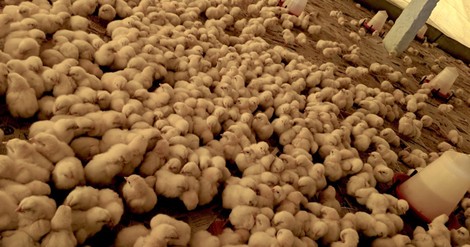Your podcast discovery platform
Curious minds select the most fascinating podcasts from around the world. Discover hand-piqd audio recommendations on your favorite topics.

piqer for: Global finds Health and Sanity Doing Good
Bangalore-based Rashmi Vasudeva's journalism has appeared in many Indian and international publications over the past decade. A features writer with over nine years of experience heading a health and fitness supplement in a mainstream Indian newspaper, her niche areas include health, wellness, fitness, food, nutrition and Indian classical Arts.
Her articles have appeared in various publications including Mint-Wall Street Journal, The Hindu, Deccan Herald (mainstream South Indian newspaper), Smart Life (Health magazine from the Malayala Manorama Group of publications), YourStory (India's media technology platform for entrepreneurs), Avantika (a noir arts and theatre magazine), ZDF (a German public broadcasting company) and others.
In 2006, she was awarded the British Print-Chevening scholarship to pursue a short-term course in new-age journalism at the University of Westminster, U.K. With a double Masters in Globalisation and Media Studies from Aarhus Universitet (Denmark), University of Amsterdam and Swansea University in Wales, U.K., she has also dabbled in academics, travel writing and socio-cultural studies. Mother to a frisky toddler, she hums 'wheels on the bus' while working and keeps a beady eye on the aforementioned toddler's antics.
The Deadly Link Between Indian Chickens And Global Superbugs
Colistin is an antibiotic that doctors generally refer to as the ‘last hope’. Used on critically-ill patients who have infections resistant to virtually all other drugs, it is medically known as the ‘last line of defence’.
In India, it is used as routine feed for chickens.
A deeply disturbing investigative piece, this article is part of a larger series that explores how antibiotic resistance is being fuelled by various ostensibly ‘unconnected’ issues and events. Antibiotics such as colistin are given to animals to make them gain weight faster so that their numbers can be accelerated for greater profit. Continued use results in bacteria developing a resistance to them, thus rendering the drug ineffective when treating patients. In this particular investigation, the authors have discovered that despite a WHO ban on use of such antibiotics as ‘growth promoters’ in animals, thousands of tonnes of colistin were shipped to India, Vietnam, South Korea, Russia and other countries in 2016. In India, animal pharma companies are happy to advertise that their products contain colistin! Worse, these are not fly-by-night poultry farmers; they are legitimate and large poultry producers that even supply meat to fast-food chains such as KFC, Dominos and Pizza Hut in India.
Little wonder then that India is being increasingly recognised as the ‘epicentre’ of the global drug resistance crisis. Unregulated sale of drugs, unchecked consumption, poor sanitation and a crumbling public healthcare system have all contributed to this crisis. Added to this is the fact that antibiotic-ridden waste is merely dumped into rivers in industrial zones of big cities—further fuelling the spread of resistant bugs.
The article not just explores these and many other causes but also tries to look at possible solutions. Consumer pressure, better legal regulation and higher awareness like in the case of tobacco might bring about some crucial changes, the authors feel.
Stay up to date – with a newsletter from your channel on Global finds.
